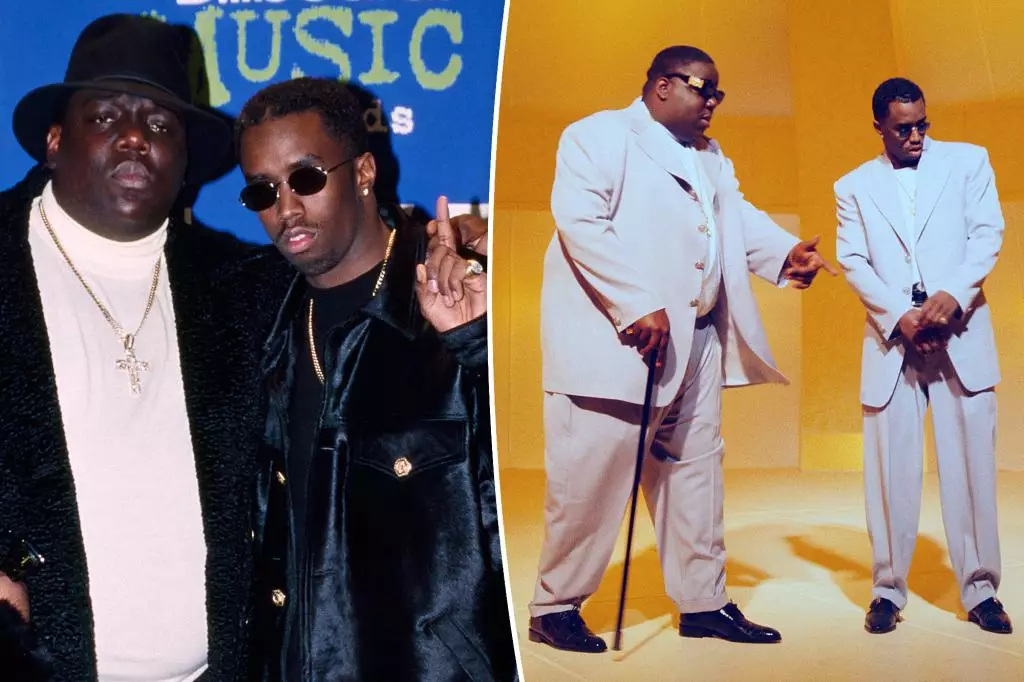In an era where information spreads rapidly and public figures are under constant scrutiny, allegations—whether substantiated or not—can irrevocably alter lives and reputations. This recent case involving Sean “Diddy” Combs exemplifies how accusations, regardless of their veracity, have the power to cast long shadows over a person’s legacy. The distressing claims range from deeply personal misconduct to sensational stories designed to tarnish a once-revered icon. The way society interacts with such allegations reveals a complex web of trust, doubt, and the quest for justice amid widespread sensationalism.
The societal response to accusations of this nature often teeters between skepticism and belief. While it’s crucial to uphold due process, the immediacy of social media can fuel assumptions, sometimes before facts are verified. These situations underscore the importance of critical thinking and the need to delay judgments until investigative proceedings run their course. However, the emotional and societal toll for both accuser and accused remains immense, often magnified by media frenzy and public opinion.
Repercussions Beyond the Courtroom
Legal battles, such as the one faced by Combs, aren’t confined solely to the courtroom but ripple through the cultural fabric. While Combs was recently acquitted of sex trafficking and racketeering charges, the allegations against him have already left an indelible mark on his career and personal life. It is worth noting that in the court of public opinion, guilt often seems presumed—regardless of legal outcomes—highlighting society’s tendency to judge based on narrative rather than evidence.
Furthermore, these allegations catalyze larger conversations about accountability, power dynamics, and the importance of protecting vulnerable individuals. Yet, they also exemplify how accusations can sometimes serve as tools for personal vendettas or biased narratives, especially in cases involving high-profile personalities. Victims’ voices need to be heard and validated, but false accusations can also cause collateral damage that affects innocent parties and diminishes the credibility of genuine victims.
The Fragile Nature of Public Image and Personal Integrity
For celebrities and figures immersed in the limelight, personal integrity becomes an essential yet fragile asset. Diddy’s legal team emphasizes his acquittal and questions the credibility of the allegations, asserting his innocence and standing firm against what they deem false accusations. This battle showcases the importance of resilience when one’s reputation is under attack, but it also masks the deeper, often unspoken toll on mental health and self-perception.
Public figures seem to be judged on their actions both in and out of the courtroom. Despite legal vindications, the societal scars may linger, forcing individuals into a perpetual fight to reclaim their integrity. Such situations raise profound questions on whether true redemption or forgiveness is possible once accusations are made. The apparent dichotomy between legal innocence and societal guilt offers a grim commentary on how modern society navigates notions of morality, presumption of guilt, and the courage required to stand firm amid controversy.
The Justice of the Digital Age
In a world increasingly mediated by social media and instant news, the line between justice and spectacle is blurred. Allegations like those hurled at Combs highlight the dangerous power of digital platforms to broadcast unverified claims widely. This mechanism can accelerate public judgment and influence brewing perceptions before any legal affirmation or denial. It emphasizes the urgent need for a more nuanced understanding of justice—one that respects both the rights of the accused and the voices of victims.
While legal systems aim to provide fairness and due process, the digital age demands a redefinition of accountability. Society must grapple with balancing the right to be presumed innocent until proven guilty against the instinctive human desire for swift justice. The stakes are high: a misstep can ruin lives irreparably, while silence or inaction can perpetuate harmful behaviors. The challenge lies in fostering a culture that champions truth, fairness, and compassion, even amid the chaos of scandal.
The Unanswered Questions of Consent and Power
Underlying many high-profile allegations, including those involving Combs, are complex issues surrounding consent and power. The dynamics at play often involve vulnerable individuals, the influence of fame, societal expectations, and the pervasive impact of coercion. Addressing these concerns requires more than legal adjudication; it demands systemic change and societal introspection.
It is critical to question how power imbalances enable or conceal misconduct, and what mechanisms should exist to protect individuals from exploitation. But equally important is the responsibility to avoid sensationalism that can overshadow genuine issues of abuse. As a society, we must cultivate an environment where truth prevails over hysteria, where victims are supported without risking their credibility being undermined, and where false accusations are penalized without dismissing real suffering.
In the end, these cases serve as stark reminders that the pursuit of justice must be rooted in integrity and compassion. Public figures, like everyone else, deserve not just legal fairness but societal understanding. The path forward demands vigilance—ensuring that stories are told responsibly, mistakes are acknowledged, and genuine accountability is upheld. Above all, society must recognize that true change begins with a commitment to truth and an unwavering respect for individual dignity, no matter how loud the noise of scandal.

Leave a Reply